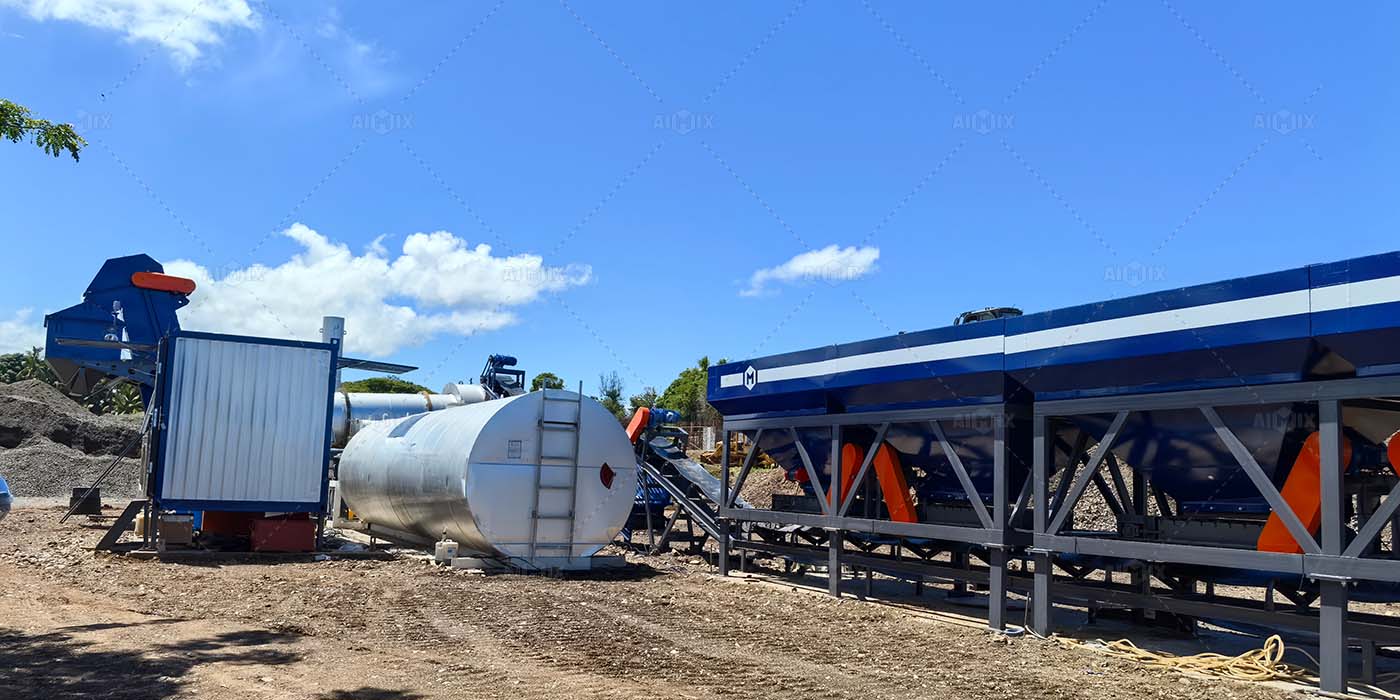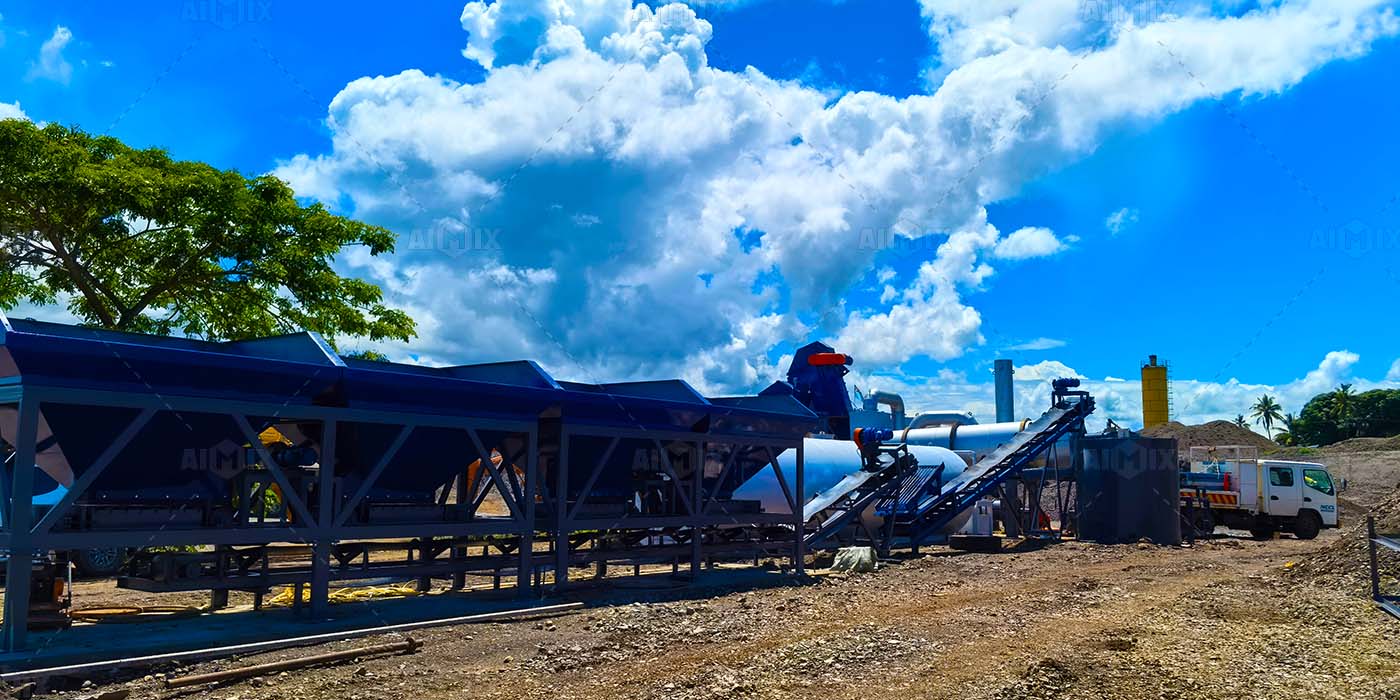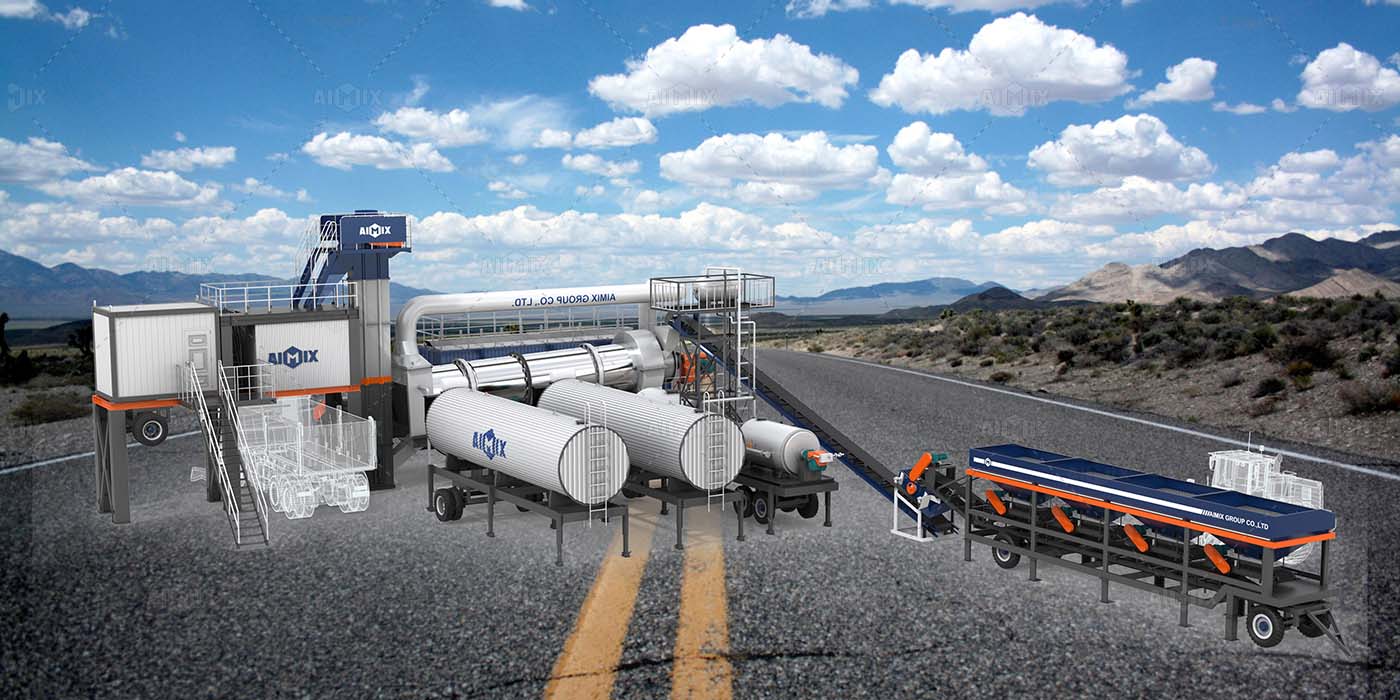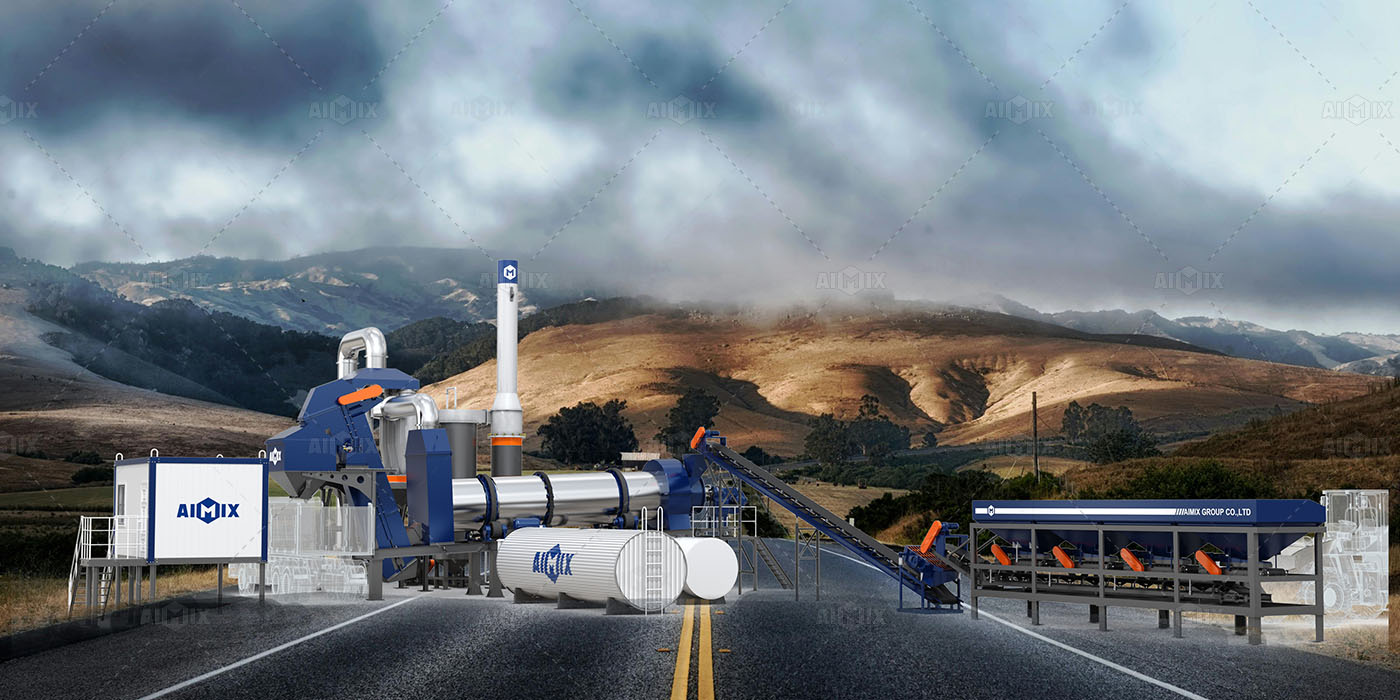When you work on rural road projects, cost control, steady output, and mobility matter most. Choosing the right asphalt drum mix plant for producing 200 tons/day can make or break your schedule. Many contractors face challenges such as scattered project sites, strict delivery timelines, and fluctuating fuel costs. The right continuous asphalt plant can help you manage these issues while delivering consistent asphalt quality. So, which asphalt plant size and configuration best fits this demand? Let’s break it down step by step.

Why Focus on 200 Tons/Day for Rural Road Projects?
In rural road construction, project size often falls between small village roads and larger provincial highways. Producing about 200 tons/day of asphalt strikes the right balance. It avoids the high investment of a large-scale plant, yet provides enough supply to finish daily paving targets. Contractors usually need 150–220 tons/day depending on weather, manpower, and road width. That is why looking at the 200-ton benchmark makes sense for most rural applications.
Now that we see why 200 tons/day is a practical target, we can look at plant models that match this output.
What Plant Capacity Do You Really Need?
Drum mix plants are rated in tons per hour (tph). If your goal is 200 tons/day, let’s assume a 10-hour workday. That means an asphalt plant equipment with 20–25 tph capacity will be enough. However, many contractors prefer a slight buffer. A 30 tph plant ensures you meet daily demand even if rain, machine checks, or traffic delays cut into working hours.
This logic shows that a 20–30 tph asphalt drum mix plant is the best range for rural roads. It keeps investment moderate, fuel use low, and mobility manageable.

Fuel Options: Diesel vs. Coal vs. LPG
Fuel choice directly affects operating cost. Rural projects often happen in areas where diesel is easier to source than coal or LPG. Diesel-fired burners are simple, clean, and reliable. Coal may look cheaper, but it requires skilled operation and more maintenance. LPG can be efficient but is not always available in rural areas.
Therefore, most contractors producing around 200 tons/day prefer diesel-fired drum mix plants. They offer the right mix of convenience, stability, and cost balance for small-to-medium projects.
Mobility: Stationary or Mobile Plant?
Another factor is whether you should choose a stationary plant or a mobile plant. Rural projects usually spread across villages and towns, which means frequent relocation. A mobile asphalt drum mix plant saves time because it is mounted on wheels or skids. You can transport it without heavy dismantling. On the other hand, a stationary plant may be suitable if you are paving several kilometers in one fixed area.
In most cases, for 200 tons/day, contractors go for mobile drum mix plants. The mobility advantage reduces downtime between projects and ensures faster return on investment.

Cost Considerations for 200 Tons/Day Output
Budgeting is always on a contractor’s mind. A 20–30 tph mobile drum mix plant requires less capital than larger units. It also consumes less fuel per ton. Daily maintenance is simpler, and the crew size can remain small. These advantages lower your overall cost per ton of asphalt produced. At the same time, the aspal mixing plant mini is strong enough to complete rural road projects on schedule, helping you win more contracts.
Example Scenario
Imagine a contractor tasked with paving 5 km of rural road at 5 m width. With 200 tons/day, the contractor can finish within two weeks, keeping costs predictable. A larger plant would sit idle. A smaller one would drag the schedule. This shows why the 20–30 tph range is the most efficient choice.
So, Which Asphalt Drum Mix Plant Is Best?
For producing 200 tons/day on rural roads, the best choice is a 20–30 tph mobile asphalt drum mix plant with a diesel burner. This setup provides the right balance of productivity, cost efficiency, and flexibility. It fits the scale of most rural projects, supports frequent moves, and keeps fuel supply simple. Contractors get reliable performance without overspending on equipment they don’t fully use.

Final Thoughts: Choosing the Right Partner
In rural road building, every ton of asphalt counts. Selecting the right drum mix plant means you can control costs, meet deadlines, and deliver quality roads to local communities. If you are planning projects that require around 200 tons/day, we can help you choose the most suitable asphalt drum mix plant for your needs. Our team provides not only equipment but also installation support and local service. That way, you stay focused on paving roads while we handle the technical side.
Ready to find the best asphalt drum mix plant for your rural road projects? Contact us today to discuss your target capacity, project location, and budget. Let’s build better roads together with the right solution.
Leave a Reply